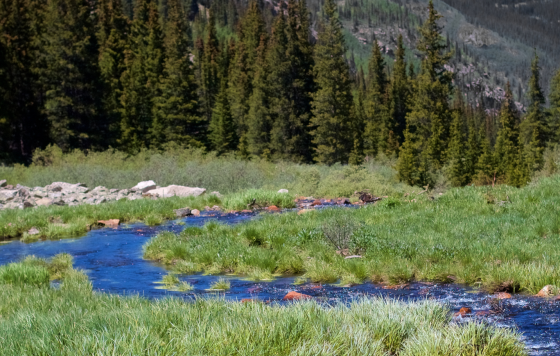
This past summer, I worked as a community organizer for Clean Water Action. Every day, we go door-to-door educating residents and presenting them with the power to get involved in the fight against climate change. Putting an end to the climate crisis and implementing protection, as well as respect for nature, is something I care deeply about for a lot of reasons. However, my faith is the main force that drives me to take action in response to environmental ethical issues.
Growing up in a Roman Catholic family, religion played a big role in my upbringing. My parents used to drag me and my four siblings to church every Sunday. As I matured however, going to church stopped becoming a chore because I saw the benefits it had on me as a person.
In our complex and fast paced world, it is sometimes difficult to clearly define what is right and what is wrong. For me, staying rooted in my faith is important because it allows me to put potential ethical problems into context. This is especially prevalent in the field of environmental ethics, because above all religion has taught me the importance of compassion. Compassion that extends to all of nature. Going forward as a species, cooperation and collaboration will be essential for our survival, as we continue to face difficult challenges.
In my view, conserving and respecting nature is self evident. It is outlandish to believe that we are somehow above nature and that everything exists for us to exploit. But this is how we as a species have been treating nature for hundreds of years. We continue to cut down forests and destroy animal habitat for the sake of human consumption. We knowingly cause the extinction of species for the convenience of humanity, and we sprawl out into the furthest reaches of nature with little regard to local wildlife. Surely, there is a way for humans to co-exist with nature, but we are far from this being a reality.
The human imagination is limitless. Most of us carry around a small miracle of technology in our pockets, one that allows us to be in contact with a person or information virtually anywhere on the earth. This kind of technology would be simply unimaginable even fifty years ago. As a collective, we have created some truly extraordinary things and made innovations that allow even the less fortunate to live lavishly relative to our ancestors.
However, every action has a consequence. For years the developed world has largely viewed itself as separate from nature, and solely viewing nature as tools to improve human living standards. As a result, there are so many things we do every day for our own convenience that have adverse effects on nature.
Want to buy groceries? A large majority of Americans have no other way of getting around than their cars. Once you get to the grocery store, most of the food there was shipped from other countries or other parts of the country. And then they are bagged in single-use plastic bags - which are made from fossil fuels.
Want to order something online? Your package will likely be shipped via plane, and more often than not was made in another country. Our modern economy as a whole is able to function thanks to cars, trucks, ships and planes transporting goods, data centers using tons of electricity, most of which comes from burning fossil fuels, and so on.
This makes it difficult for someone to reduce their footprint even if they want to, thereby making our economy and the planet inherently unsustainable. Our “profit driven” economy makes it very hard to consider environmental ethics, human and worker rights. This is a problem that must be addressed quickly before the damage we have done is permanent. Luckily, some companies are starting to take some initiative and proving that capitalism and environmentalism are not incompatible.
Recently, there has been a movement for companies to adopt environmental, social, and governance (ESG) principles into their business to attract socially conscience investors. ESG principles are based on the notion that issues such as climate change and human rights can affect the performance of businesses and should therefore be considered alongside traditional methods.
By being efficient with resources, recycling, and switching to green energy, companies are saving money while reducing their environmental impact. By valuing and treating employees well at all levels, companies get more productivity and innovation. Lastly, a company benefits by incentivizing sustainable practices, implementing ethical standards, and employing a diverse and independent board of directors. Not only do these methods develop stronger and more robust companies, they are traditionally and environmentally ethical. It’s very encouraging to see companies start to adapt and become more ethical, however there is a long way to go and some areas will not change unless the government has the willingness to take action.
We will not escape this climate crisis unscathed unless the government takes aggressive action. We need more clean energy initiatives, policies that help to reduce waste, and to stop more fossil fuel plants from being built. Clean Water Action is actively lobbying to help achieve these goals by demanding a stronger New Jersey Energy Master Plan, encouraging a ban on single-use plastic bags, and working to stop new fossil fuel pipelines and power plants from being built.
Through these goals, we can help create a more sustainable and circular economy, and restore the respect that our environment desperately needs. I think this whole issue is summed up best with one analogy. When driving, the faster you are moving, the further ahead you have to look. Human progress is at an all time high, and is only going to accelerate faster and faster. If we want to ensure the long term prosperity, progress, and survival of our species and the planet we call home, we have to start thinking more long term, and therefore more sustainable. To get involved and learn more about our campaigns, visit www.cleanwater.org/nj.


